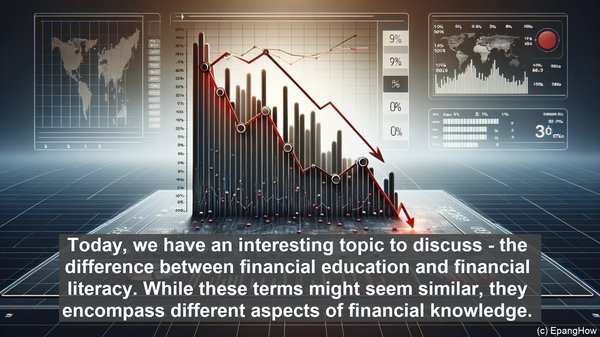Introduction: The Overlapping Yet Unique Concepts
Hello everyone! Welcome to our channel. Today, we have an interesting topic to discuss – the difference between financial education and financial literacy. While these terms might seem similar, they encompass different aspects of financial knowledge. So, let’s dive in!

Defining Financial Education: The Foundation
Financial education refers to the structured learning process that equips individuals with comprehensive knowledge about various financial aspects. It often involves formal courses, workshops, or programs that cover topics like budgeting, investing, and understanding financial markets. The goal of financial education is to provide individuals with in-depth knowledge and skills to make informed financial decisions.
Exploring Financial Literacy: The Practical Application
On the other hand, financial literacy focuses on the practical application of financial knowledge. It is the ability to understand and use financial concepts in real-life situations. Financial literacy encompasses skills like managing personal finances, reading financial statements, and making informed choices about loans or investments. It’s about being financially capable and confident in day-to-day financial matters.
The Interplay: How They Complement Each Other
While financial education and financial literacy have distinct meanings, they are interconnected. Financial education provides the foundation, equipping individuals with knowledge. Financial literacy, on the other hand, is the practical manifestation of that knowledge. It’s like having the tools (financial education) and knowing how to use them effectively (financial literacy). Together, they create a well-rounded financial understanding.
The Importance: Navigating the Complex Financial Landscape
In today’s world, where financial decisions are becoming increasingly complex, both financial education and financial literacy are crucial. Financial education ensures individuals have the necessary knowledge to understand intricate financial concepts. Financial literacy, on the other hand, empowers individuals to apply that knowledge in their day-to-day lives. Together, they enable individuals to navigate the financial landscape with confidence and make informed choices.

